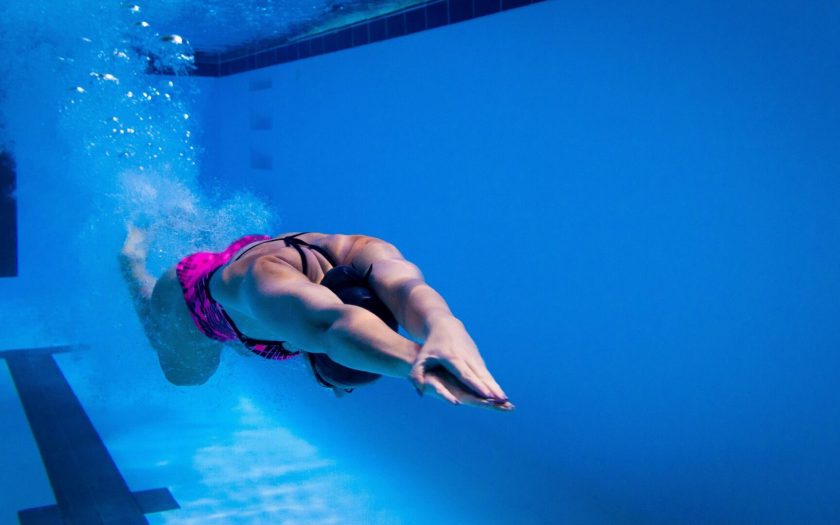Doctors do not recommend people with a diagnosis of bronchial asthma to engage in heavy physical activity. Contraindicated exercises on horizontal bars, obstacle course, etc. Any sports that require prolonged breath holding are strictly prohibited: diving, spearfishing. Scuba diving poses a high risk for people with asthma. But at the same time, regular swimming is useful for asthma.
What are the benefits of swimming for the respiratory system?
- this is a type of physical activity that is accompanied by deep breathing (to ensure a sufficient amount of oxygen to human organs and tissues). Activation the areas of the lungs that are not normally involved in inhalation eliminate the development of atrophy of the lungs, bronchi and alveoli;
- swimming also increases the vital capacity of the lungs and increases the elasticity of lung tissue. There is evidence that thanks to regular swimming, the number of alveoli in a person increases, and “non-working” areas of the lungs are simultaneously involved;
- for people suffering from bronchial asthma, it is very important to breathe correctly, to pay attention to the ratio of inhalation/exhalation. Breathing should be quite deep and calm. Swimming is ideal for developing such a breathing “mode”;
- pathology of the respiratory system is accompanied by chronic hypoxia of the body. An increase in respiratory volume increases the concentration of oxygen in the blood. Stimulating the skin with water simultaneously stimulates blood circulation, thereby compensating for hypoxic phenomena;
- the horizontal position of the body in the water in combination with inhalation of warm moist air improves bronchial drainage;
- the mechanical pressure of water on the chest helps to strengthen the respiratory muscles. As a result, the exhalation process improves.
Thus, swimming is both respiratory gymnastics and massage, which affects not only the respiratory system, but also the whole body.
You should feel good while swimming. Listen carefully to your feelings, check your breathing and pulse.
The intensity should increase gradually, under the strict control of the trainer. If you feel unwell or have coughing fits during classes, you should stop swimming. Be sure to start training with simple exercises.
Warming up reduces the likelihood of an attack during training and should last at least 10-15 minutes. Equally important are regular visits to a pulmonologist, family doctor or pediatrician and regular intake of medications such as Montair and Flixotide. Montair (Montelukast Sodium) is a medicine called a leukotriene receptor antagonist which is used to control asthma symptoms on a long-term basis. It works by blocking leukotrienes. Blocking leukotrienes improves asthma symptoms. Flixotide (Fluticasone Propionate) inhaler or accuhaler is indicated for the prevention of the excessive formation of mucus.

